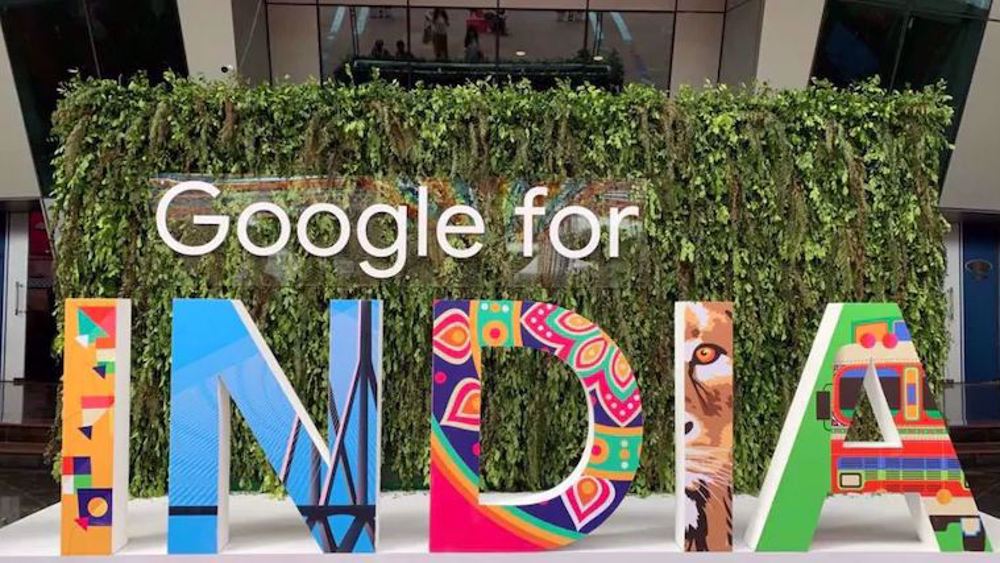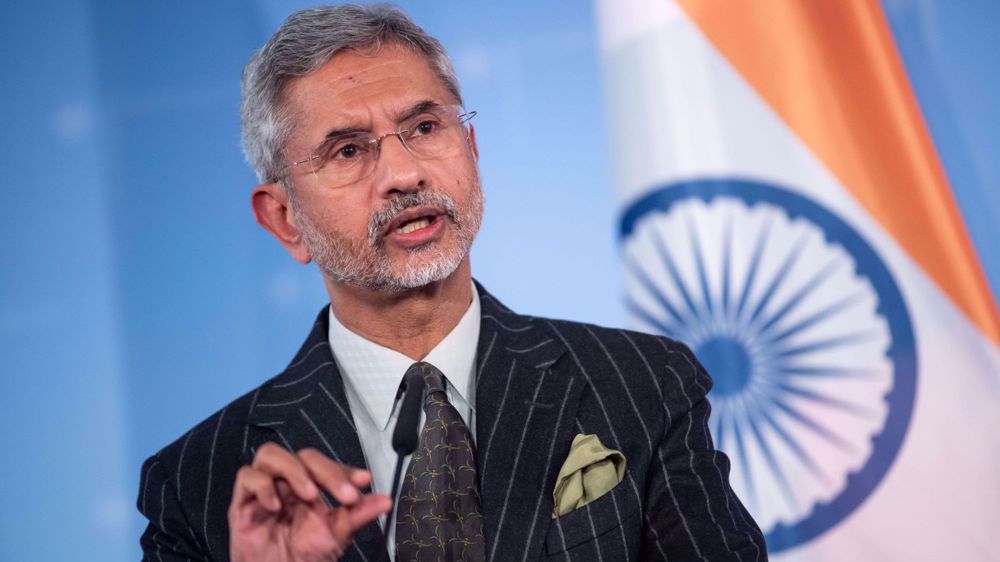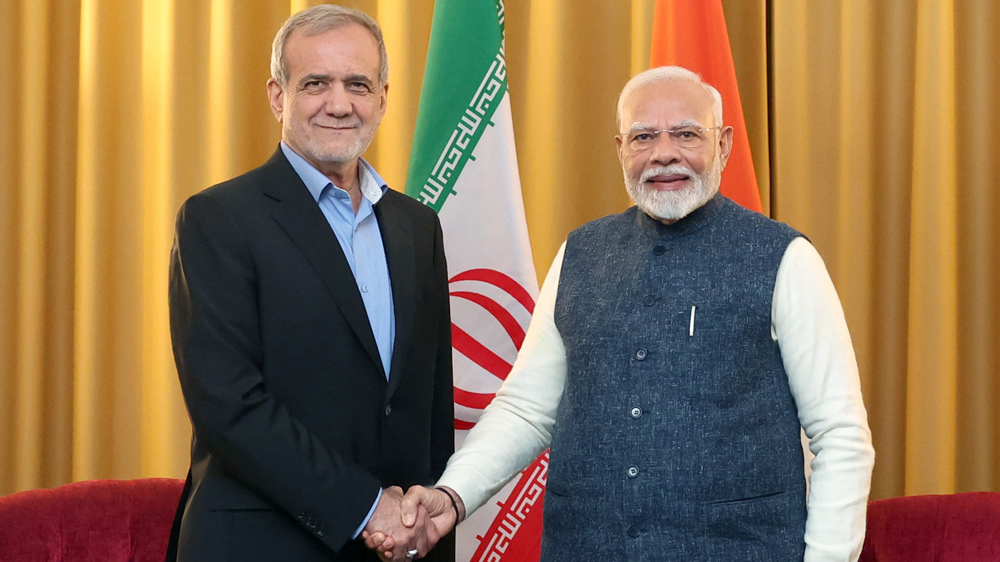Kashmiri Muslim employee says has suffered discrimination at Google
A Kashmiri Muslim man says he has been a subject of discrimination on the basis of his identity when he worked at an affiliate of Google in India.
Speaking to Press TV, Zahid Showkat says he had worked for 18 months as a vendor employee of Google India, hired by Serco Global Services, a partner of Google Ad-words, when he faced certain malpractices and racist/anti-Muslim behaviors.
“I worked as an online strategist (Google Ad-words account manager) for Google ad-words ETO team India (External Tele Operations) at Google India office, first floor, Rolta Towers, Gurgaon, India,” he said in an email interview.
Zahid says he was discriminated against on the basis of his identity as a Muslim and Kashmiri, and he brought to the attention of seniors at various times.
“I was often provoked by middle management and a few co-workers to discuss the politically volatile nature of my state which I always avoided. One such incident occurred in September 2014 when my Avaya was plastered with a note ‘Hindustan zindabad’ (long live India) as a way to single me out and question my integrity in racial/religious terms.”
Zahid says he brought the issue to the attention of his Google reporting manager, but to no avail.
“Instead, it led to further ridicule,” he recalls. “I was often taunted with being told: ‘if you don’t say Hindustan zindabad (‘long live India’), your sale won’t be updated’.”
He says one of his managers always used abusive language against him, and often called him names along with some other colleagues.
“I ignored these incidents but this psychological torture affected my mental health to a great extent. It was quite evident to me that Google India and its Ad-words partners in India (Serco) were looking for excuses to throw me out of the company as they often used to tell me that "it’s better for you to look for a job in your own country". I still kept working. I made a good contribution to the business since I was a top performer.”
He says he was threatened to hand in his resignation along with a written confession that he had been engaged in an illegal practice.
“I was further forced to write that ‘my intentions to acquire an account were based on my personal greed and Google India and Serco had no involvement in it’. When I declined to do so, I was threatened, harassed and cornered and my Google access card was forcibly taken from me and I was told to leave Google premises. I left and soon after realized Google Mountain-view California erased my employee details from Google’s intranet, 11 days (approx.) prior to my resignation under duress with their partners in India at Google Rolta towers Gurgaon without affording me an opportunity of being heard. Furthermore, my dues were not paid in full, I have been blacklisted in Google and my career is wrecked,” he added.
He says he has raised the issue with Google’s leadership in California and they have assured him that they would have a close look at his case.
“It was only after this that Google India and Serco replied to my legal notice in a very threatening and diplomatic manner with half-baked truths and falsified facts. The on-going email conversation with Google Singapore was also not fruitful as they too supported Google India's response by washing its hands off the issue and told me to contact Serco regarding the discriminatory practices at Google India's office.”
“I replied back to the contents of notice to Google Mountain-view California via email, and told them that I did not want a legal battle but wanted Google-plex to investigate my case properly. However, they didn’t honor my request to investigate the matter further and refused to elaborate,” Zahid said.
He says he has applied for legal aid and they have assigned him a lawyer, who referred him to national commission of minorities, which further referred him to the supreme court. “At the end they all used delay tactics and completely rode rough-shods over my case.”
Zahid says he believes this kind of discrimination against religious minorities is “routine” in India, hence it receives little or no attention from any quarters.
Last month, Human Rights Watch (HRW) said the Indian government has adopted laws and policies that are discriminatory against the country's Muslim minority population, especially those in Kashmir.
In a report released on February 19, the New York-based organization said India's ruling Bharatiya Janata Party's (BJP) prejudices had infiltrated the country's police and courts, empowering Hindu nationalists to threaten, harass, and attack religious minorities with impunity.
"The BJP's embrace of the Hindu majority at the expense of minorities has seeped into government institutions, undermining equal protection of the law without discrimination," Meenakshi Ganguly, the South Asia director at HRW, said.
"The government has not only failed to protect Muslims and other minorities from attacks but is providing political patronage and cover for bigotry," Ganguly said.
On February 23, 2020, at least 53 people, mostly Muslims, were killed and more than 200 were injured in the worst communal violence in the Indian capital, New Delhi, in decades.
Hindu mobs attacked Muslim communities in New Delhi, burning their shops and businesses. Many blamed Prime Minister Narendra Modi's far-right rhetoric for the violence.
The clashes erupted after the parliament passed a controversial bill granting citizenship to religious minorities except Muslims in December 2019. Critics said the law was discriminatory and flouted India's secular constitution.
Also on August 5, 2019, Modi revoked the autonomy of the Indian-administered portion of the Muslim-majority Kashmir region.
Following the announcement of the removal of Kashmir's special status, Indian authorities imposed harsh movement restrictions, made mass arrests, and blocked communication to thwart any protests.
New Delhi's move fueled tensions in the disputed Himalayan region.
Muslims in India are also facing increasing discrimination amid the coronavirus pandemic. They have falsely been blamed for spreading the virus in India.
Yemenis reiterate support for Palestinians amid Gaza genocide
Iran FM: China visit will mark 'golden' era in strategic ties
VIDEO | Austrian Muslim NGO dedicates aid collecting event to Gaza
Israel launches three raids on Lebanon in fresh truce breach
Dec. 26: ‘Axis of Resistance’ operations against Israeli occupation
Israeli forces raid Kamal Adwan Hospital after killing 53 in airstrikes
Pezeshkian to visit Russia next month to sign partnership pact
'Hypersonic' Yemeni missile hits Tel Aviv after Israeli airstrikes











 This makes it easy to access the Press TV website
This makes it easy to access the Press TV website